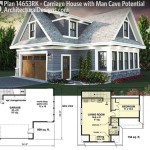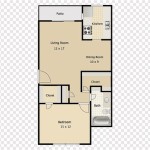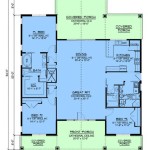Examples Of Floor Plans For A House
Floor plans are a vital part of the home design process. They provide a visual representation of the layout of a house, showing the arrangement of rooms, walls, doors, and windows. Floor plans can be used for a variety of purposes, including:
- Planning the layout of a new home
- Remodeling an existing home
- Adding an addition to a home
- Creating a home inventory
- Obtaining building permits
There are many different types of floor plans available, each with its own advantages and disadvantages. Some of the most common types of floor plans include:
- One-story floor plans: One-story floor plans are simple and easy to navigate, making them a good choice for small homes and homes with limited space.
- Two-story floor plans: Two-story floor plans offer more space than one-story floor plans, but they can be more difficult to navigate and may require more stairs.
- Split-level floor plans: Split-level floor plans are a good compromise between one-story and two-story floor plans, offering more space than one-story floor plans without the need for stairs.
- Open floor plans: Open floor plans feature large, open spaces with few walls or partitions. This type of floor plan is popular in modern homes and can create a feeling of spaciousness.
- Closed floor plans: Closed floor plans feature smaller, more compartmentalized rooms. This type of floor plan is more traditional and can provide more privacy.
When choosing a floor plan, it is important to consider your needs and lifestyle. If you have a large family, you may need a floor plan with more bedrooms and bathrooms. If you entertain frequently, you may want a floor plan with a large living room and dining room. If you are concerned about energy efficiency, you may want to choose a floor plan that features passive solar design.
Once you have chosen a floor plan, you can begin to customize it to meet your specific needs. You can add or remove rooms, change the size and shape of rooms, and move walls and doors. You can also add features such as fireplaces, built-in bookcases, and bay windows.
Floor plans are an essential part of the home design process. By understanding the different types of floor plans available and considering your needs and lifestyle, you can choose a floor plan that will meet your needs and create the home of your dreams.
Tips for Choosing a Floor Plan
Here are a few tips for choosing a floor plan:
- Consider your needs and lifestyle: What are your current and future needs? How do you use your home? What are your entertaining habits? How much space do you need?
- Do your research: Look at different floor plans and talk to a home builder or architect. Get a feel for what is available and what will work for you.
- Consider the size and shape of your lot: The size and shape of your lot will dictate the type of floor plan you can choose.
- Think about the future: How will your needs change in the future? Will you need more bedrooms or bathrooms? Will you want to add an addition? Choose a floor plan that can accommodate your future needs.
By following these tips, you can choose a floor plan that will meet your needs and create the home of your dreams.

Small House Design 2024001 Pinoy Eplans Floor Plans

12 Examples Of Floor Plans With Dimensions

Ready To Use Sample Floor Plan Drawings Templates Easy Blue Print Floorplan Ezblueprint Com

Free Floor Plan Template Inspirational Home Plans Sample House Simple Layout

12 Examples Of Floor Plans With Dimensions

Home Floor Plans House Plan Drawings

12 Examples Of Floor Plans With Dimensions

Free Editable Open Floor Plans Edrawmax

Ready To Use Sample Floor Plan Drawings Templates Easy Blue Print Floorplan Ezblueprint Com

Free Editable Open Floor Plans Edrawmax








